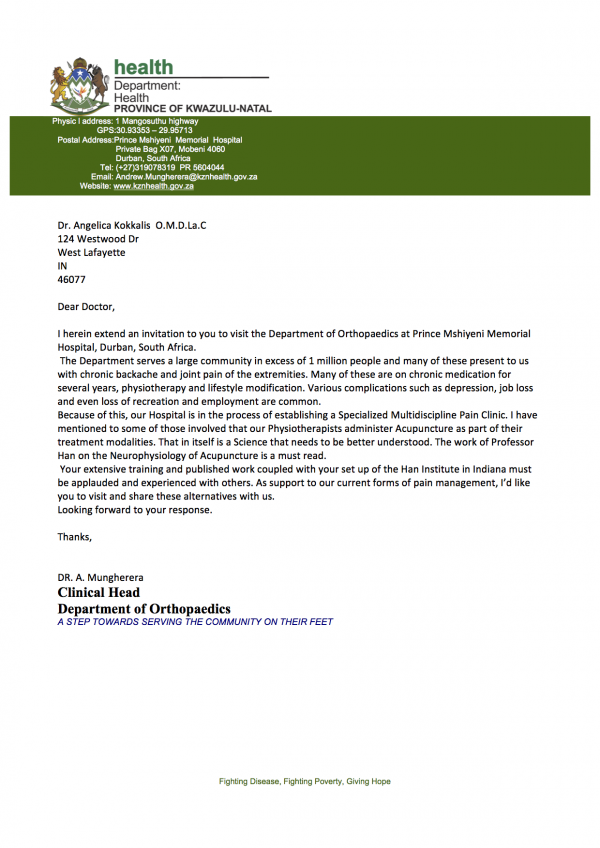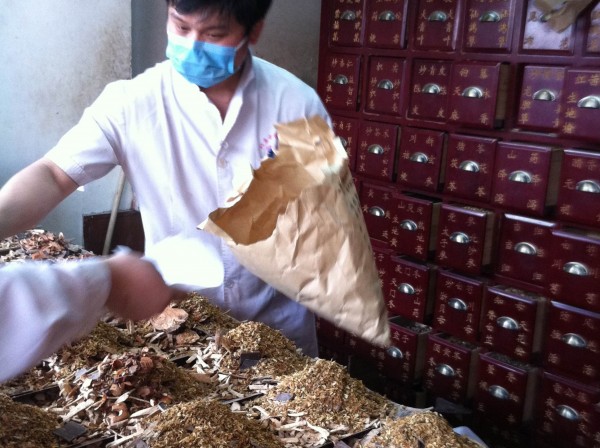For thousands of years, Traditional Chinese Medicine (TCM) has relied on the healing power of nature—particularly herbs—to restore balance, strengthen vitality, and prevent disease. In TCM, health is not simply the absence of illness. It’s the harmonious flow of Qi (energy) through the body’s meridians and organ systems. When that flow is disrupted, herbs can help restore equilibrium.
Why Herbs Are Central to TCM
Unlike Western medicine, which often isolates single active compounds, TCM views herbs as part of a living system. Each plant carries its own energy, flavor, and nature—cooling, warming, drying, or moistening—and these qualities are matched to the individual’s unique pattern of imbalance. Herbal formulas are rarely one-size-fits-all; they are customized to address both the symptoms and the root cause.
Some of the Most Valued Chinese Herbs
Ginseng (Ren Shen)
Often called the “King of Herbs,” ginseng is used to strengthen Qi and support the body’s overall resilience. It enhances stamina, focus, and immunity—helping the body adapt to both physical and emotional stress.
Goji Berries (Gou Qi Zi)
Known for nourishing the liver and kidneys, goji berries are said to improve eyesight, support longevity, and enhance overall vitality. In modern times, they’ve gained fame as a superfood for their antioxidant properties.
Astragalus (Huang Qi)
A powerful immune tonic, astragalus strengthens the body’s defenses and promotes wound healing. It’s often used preventively, especially during cold and flu season.
Reishi Mushroom (Ling Zhi)
Revered as the “Herb of Immortality,” reishi is used to calm the spirit, reduce stress, and support the immune system. It’s particularly beneficial for those dealing with fatigue, anxiety, or sleep issues.
Schisandra (Wu Wei Zi)
Translated as the “Five Flavor Fruit,” schisandra helps the body adapt to stress, boosts liver function, and sharpens concentration. It’s considered a longevity herb in many classical formulas.
Herbs for the Mind and Spirit
Many people ask, “Which herb is a miracle for the brain?” While no single herb works miracles, several have long been used to support mental clarity and emotional balance.
- Polygala (Yuan Zhi) is used to calm the heart and strengthen the connection between the heart and mind, aiding memory and emotional stability.
- Ginkgo (Yin Xing Ye) promotes blood flow to the brain and supports cognitive function, especially in older adults.
The Philosophy Behind Herbal Formulas
In TCM, herbs are rarely taken alone. Instead, they are blended into formulas that work synergistically. Each ingredient plays a role—some target the main imbalance, others support the body, guide the formula to specific organs, or harmonize the overall effect. This balance of relationships mirrors the way TCM views the body: as an interconnected ecosystem, not isolated parts.
Why Traditional Chinese Medicine Is Gaining Renewed Respect
While some Western institutions have been slow to accept TCM due to its holistic approach and qualitative language, modern research continues to validate many of its principles. Scientific studies have demonstrated the immune-modulating effects of ginseng, the anti-inflammatory properties of astragalus, and the neuroprotective qualities of reishi and schisandra. As integrative medicine evolves, more practitioners are combining ancient wisdom with modern science.
A Word from Dr. Angelica Kokkalis
At The Han Institute, we believe the best medicine honors both tradition and innovation. Our approach blends classical Chinese herbal knowledge with modern research and clinical practice. Whether you’re seeking to boost energy, calm your mind, or support recovery, herbal therapy can play a vital role in your healing journey.
Dr. A. Mungherera from the University of KwaZulu Natal in South Africa has formally invited Dr. Angelica Kokkalis of the Han Institute to present December 27-January 7 on pain management, herbal medicine, and the Han Protocols.

Five thousand years ago in a tranquil basin of the Yellow River, a civilization was born deep in China. The people and culture that emerged from this region eventually inhabited much of the Asian continent.

They had no formal religion, so instead their lives were governed by an abiding respect for nature and a fundamental reverence for the powers of creation. As they observed nature, they built a philosophy and patterned their lives upon the natural laws of the universe.
Life, along with its many challenges, is a puzzle. Rather than creating solutions, the early Chinese instead sought answers. They observed and imitated nature, a model already perfectly designed. Their philosophical base was deep and became defined to their generation.
The numbers one through five have a symbolic meaning in the Chinese philosophy.
For man and nature there is but one origin, a creator of peace and harmony. The first dimension, heaven, served to remind man of a divine realm beyond the tangible earth, and that all things physical also have a spiritual nature. Two represents balance; the competing and complementary forces of Yin and Yang, one inward/one outward, one positive/one negative, but whole when in balance.
The number three stands for heaven, earth, and man. Human beings exist to live on, and of, the earth. Four illustrates variety and is exhibited by the four seasons of nature. In variety is found difference, changes, and the joy of the earth. The number five represents the five elements that comprise all of the universe: fire, earth, metal, water, and wood.
For harmony to exist, all five elements must be present in man, fish animals, plants, trees, and flowers. In all creations, the five elements are working in constructive tandem in what is called the “cycle of quinary”.
The Chinese have believed for thousands of years that true harmony is achieved only when balance exists. To achieve harmony in their lives, the Chinese sought to master the laws of nature and the laws of the universe. Because they had no understanding of an afterlife, the quality of their present life became their primary focus.
The ancient Chinese summed their belief with a saying, “to live long and to live well”. Health and longevity were achieved out-
wardly through exercising and inwardly through proper nutrition and meditation. To the Chinese, health was a product of the foods they ate, the air they breathed, how they exercised their bodies and how they exercised their mind. The quality of their food reflected directly upon the quality of their lives.
Food must be natural, fresh, and wholesome. It must be in great variety, and always in balance. Herbs and vegetables, the natural gifts from the mother earth, were the foods that the Chinese historically relied upon to promote health. They believed in pure and natural foods which, when eaten in proper quantities and in the right combination, kept the body nourished, balanced, and cleansed. With thousands of herbs, there is an incredible variety, and, as with all whole foods, herbs maintain the natural synergy and balance so vital to the human body.
The ‘Gods of Herbs’
A man named Shen Nan experimented with plants and herbs to understand how the body could be nourished. He studied and recorded the effects on his body of eating as many as 70 different herbs each day. Hence, he discovered the herbs as food. Shen Nan taught his people how to identify, cultivate, and utilize herbs beneficial to the body and became known as the “God of Herbs”.
The legacy was continued by Huan Di, the Yellow Emperor. He subsequently assembled the finest doctors to study and document the many benefits of herbs as food.
This article was originally printed in the Zionsville Times Sentinel on 12/27/06.
Angelica Kokkalis, O.M.D., is a local Doctor of Traditional Chinese Medicine, with training and expertise in Eastern and Western medicine. Her professional mission is to relieve suffering through the use of time-honored techniques of Traditional Chinese Medicine to bring the body back into balance, thus facilitating its natural ability to heal itself.
Originally printed in the Journal and Courier, Sunday, July 22,2001 by Amy Patterson-Neubert, Journal and Courier.
Patients should inform doctors of all medications being taken
 Garlic isn’t usually pegged as I life threatening.
Garlic isn’t usually pegged as I life threatening.
But when patients self-prescribe this herb for cholesterol and blood pressure concerns and then fail to tell their anesthesiologist or surgeon, health complications can result during surgery. A recent report published in the Journal of American Medical Association highlights the potential dangers of herbs and surgery, but local general surgeons have been informed of the same concerns for nearly five months.
Dr. Kenneth Bochenek, medical director of anesthesiology services at Greater Lafayette Health Services Inc., which operates Home Hospital and St. Elizabeth Medical Center, distributed brochures to local general surgeons regarding the possible interactions between herbs and drugs, especially for anesthesia. For example, garlic can have prolonged bleeding effects if combined with anticoagulant sodium warfarin, also known as Coumadin.
A patient’s variation of the brochure What You Should Know About Herbal Use and Anesthesia is available at Home Hospital’s ambulatory surgery center.
“The problem is patients don’t recognize herbs as medications,” said Bochenek, who is also president of Anesthesiology Services.
Bochenek is not aware of any surgical complications locally from herbal medicines. Herbs can include flowering plants, shrubs, trees, moss, fern algae, seaweedor fungus. The study reported in JAMA identified echinacea, ephedra, garlic, ginkgo, ginseng, kava, St. John’s wort and valerian as herbs with potential surgery complications.
Anesthesiologists are researching nationally how certain herbals interact with specific anesthesias, according to information published by the American Society of Anesthesiologists. For example, herbs may extend anesthetic effects, and others such as garlic can increase the risks of bleeding.
When patients neglect to inform their physician or surgeon what or how much herb they are consuming, the herb can mix with medication or anesthesia. Bochenek said patients who forget to tell the surgical team what they are on is not uncommon. For example, when some women list the medicines they are consuming, many don’t acknowledge birth control pills.
In the past, patients at Sagamore Surgical Center were asked what medications they were taking. Now the staff has rephrased the question to include herbs and supplements too because patients failed to identify some products.
“A lot of people do not see these as medicines so they leave them out,” said Ann Keyes, assistant directcr of nursing at Sagamore Surgical Center. “But then you look at their lab work … and see something.”
Surgical teams also have to be cautious of herbs because they are not consistent in dosage or content. Herbs, unlike over-the-counter medications, are not regulated by the Food and Drug Administration.
“To me it’s just playing Russian roulette,” Bochenek said. “You’re just spinning the chamber and pulling the trigger with some medications.”
Patients’ faulty thinking comes from the perception herbs are natural and safe, according to Nick Popovich, professor in the Purdue School of Pharmacy with an interest in over-the-counter and herbal medicines.
“Herbal medicines can cause a lot of problems with respect to drug interaction and complications associated with surgery,” Popovich said. “The message is: Before you take herbal medicines – and if you are on prescribed medicines – check with your doctor or pharmacist to make there are sure no interactions.”
If a patient is found to be on an herb or the dosage could complication the surgery or related medications, the procedure may be delayed to ensure the herb has exited the body. At least two weeks is generally the wait time.
Dr. Angelica Kokkalias, a Chinese oriental doctor and medical doctor, is concerned the publicity of this report could deter people from herbs altogether.
“The doctors should not scare patients,” said Kokkalias, who resides in West Lafayette but practices in Zionsville and Indianapolis. “I think it’s the responsibility of the state to educate physicians about herbs.”
When Kokkalias advises patients of an herb for wellness or to treat an ailment, she doesn’t recommend they’ buy a bottle off a drug store shelf. She works with a national company that reports the ingredients of the herb, so there is no guesswork.
“Western doctors need to be more open minded and holistic, and the holistic need to learn more about Western medication,” Kokkalias said. “The safety of the patient is involved.”
Reprinted with permission from the Zionsville Times Sentinel, AG/ ENVIRONMENT, WEDNESDAY, DECEMBER, 27, 2006
Five-thousand years ago in a tranquil basin of the Yellow River, a civilization was born deep in China. The people and culture that emerged from this region eventually inhabited much of the Asian continent. They had no formal religion, so instead their lives were governed by an abiding respect for nature and a fundamental reverence for the powers of creation. As they observed nature, they built a philosophy and patterned their lives upon the natural laws of the universe. Life, along with its many challenges, is a puzzle. Rather than creating solutions, the early Chinese instead sought answers. They observed and imitated nature, a model already perfectly designed. Their philosophical base was deep and became defined to their generation. The numbers one through five have a symbolic meaning in the Chinese philosophy.
For man and nature there is but one origin, a creator of peace and harmony. The first dimension, heaven, served to remind man of a divine realm beyond the tangible earth, and that all things physical also have a spiritual nature. Two represents balance; the competing and complementary forces of Ymg and Yang, one inward one outward, one positive one negative, but whole when in balance. The number three stands for heaven, earth and man. Human beings exist to live on, and of, the earth. Four illustrates variety and is exhibited by the four seasons of nature. In variety is found differences, changes and the joy of the earth. The number five represents the five elements that comprise all of the universe: fire, earth, metal, water and wood. For harmony to exist, all five elements must be present in man, fish, animals, plants, trees and flowers. In all creations the five elements are found working in constructive tandem in what is called the “cycle of quinary.”
The Chinese have believed for thousands of years that true harmony is achieved only when balance exists. To achieve harmony in their lives, the Chinese sought to master the laws of nature and the laws of universe. Because they had no understanding of an afterlife, the quality of their present life became their primary focus. The ancient Chinese summed their belief with a saying, “to live long and to five well.” Health and longevity were achieved outwardly through exercising and inwardly through proper nutrition and meditation. To the Chinese, health was a product of the foods they ate, the air they breathed, how they exercised their bodies and how they exercised their mind. The quality of their food reflected directly upon the quality of their lives. Food must be natural, fresh and wholesome. It must be in great variety, and always in balance. Herbs and vegetables, the natural gifts from the mother earth, were the foods that the Chinese historically relied upon to promote health. They believed in pure and natural foods which, when eaten in proper quantities and in the right combination, kept the body nourished, balanced and cleansed. With thousands of herbs, there is an incredible variety, and as with all whole foods, herbs maintain the natural synergy and balance so vital to the human body.
A man named Shen Nan experimented with plants and herbs to understand how the body could be nourished. He studied and recorded the effects on his body of eating as many as 70 different herbs each day. Hence, he discovered the herbs as foods. Shen Nan taught his people how to identify, cultivate and utilize herbs beneficial to the body and became known as the God of Herbs. The legacy was continued by Huan Di, the Yellow Emperor. He subsequently assembled the finest doctors to study and document the many benefits of herbs as foods.
